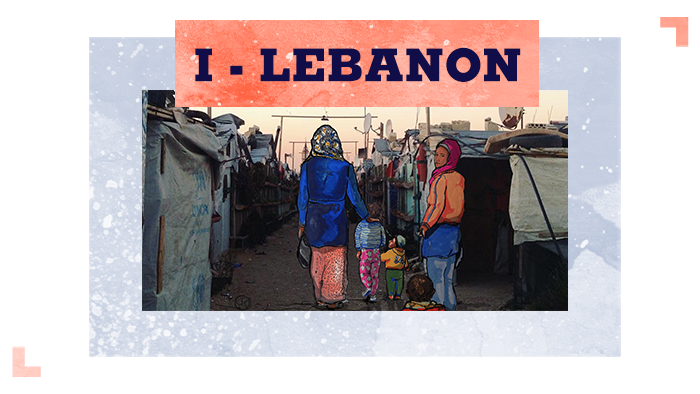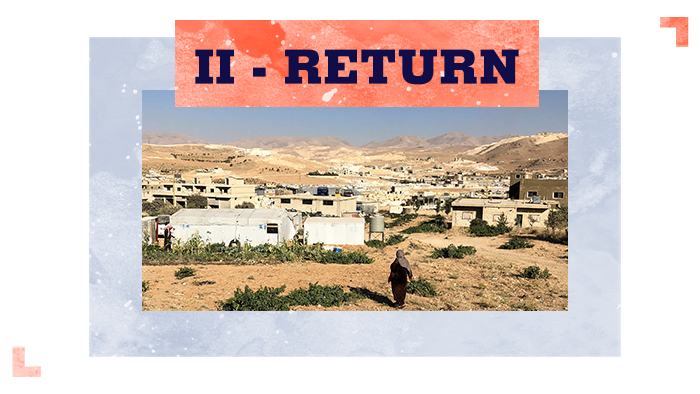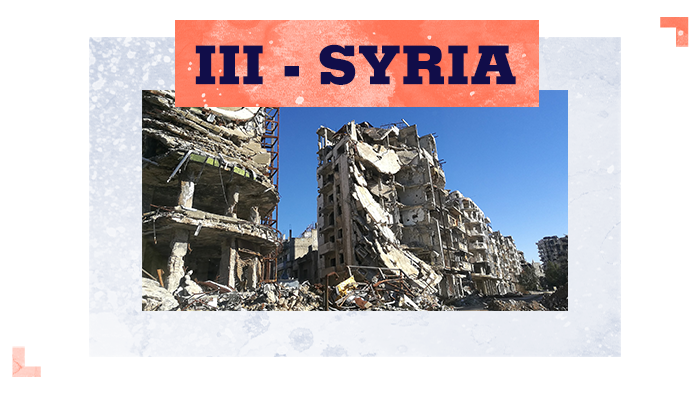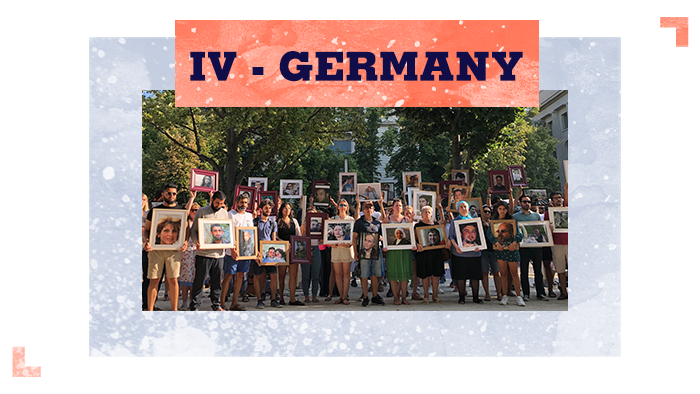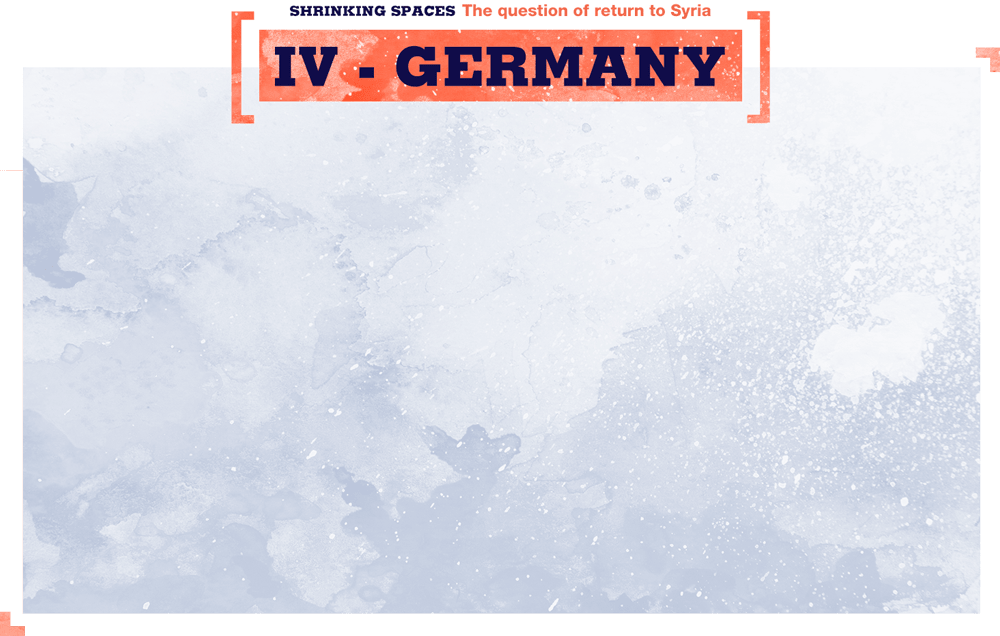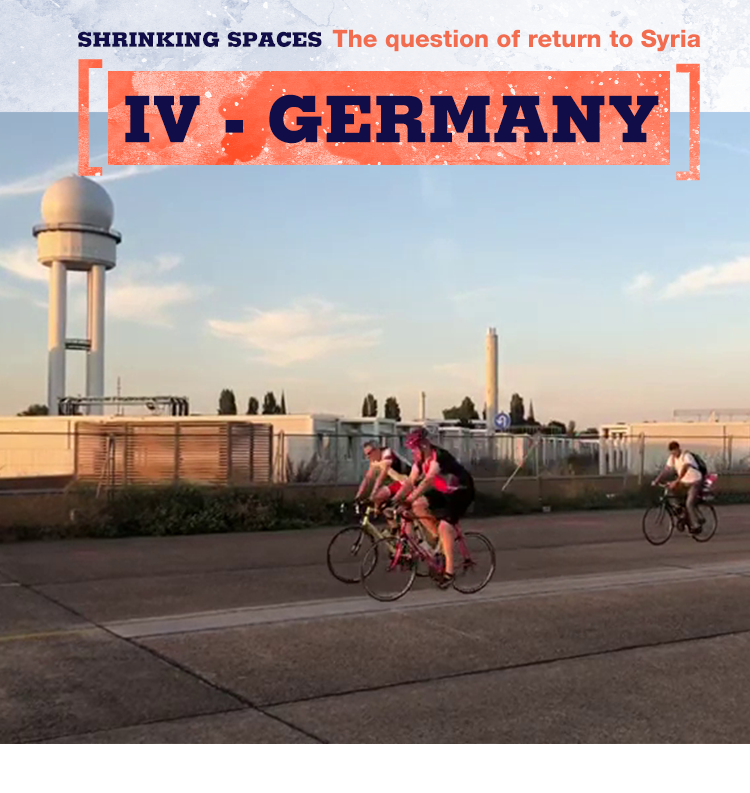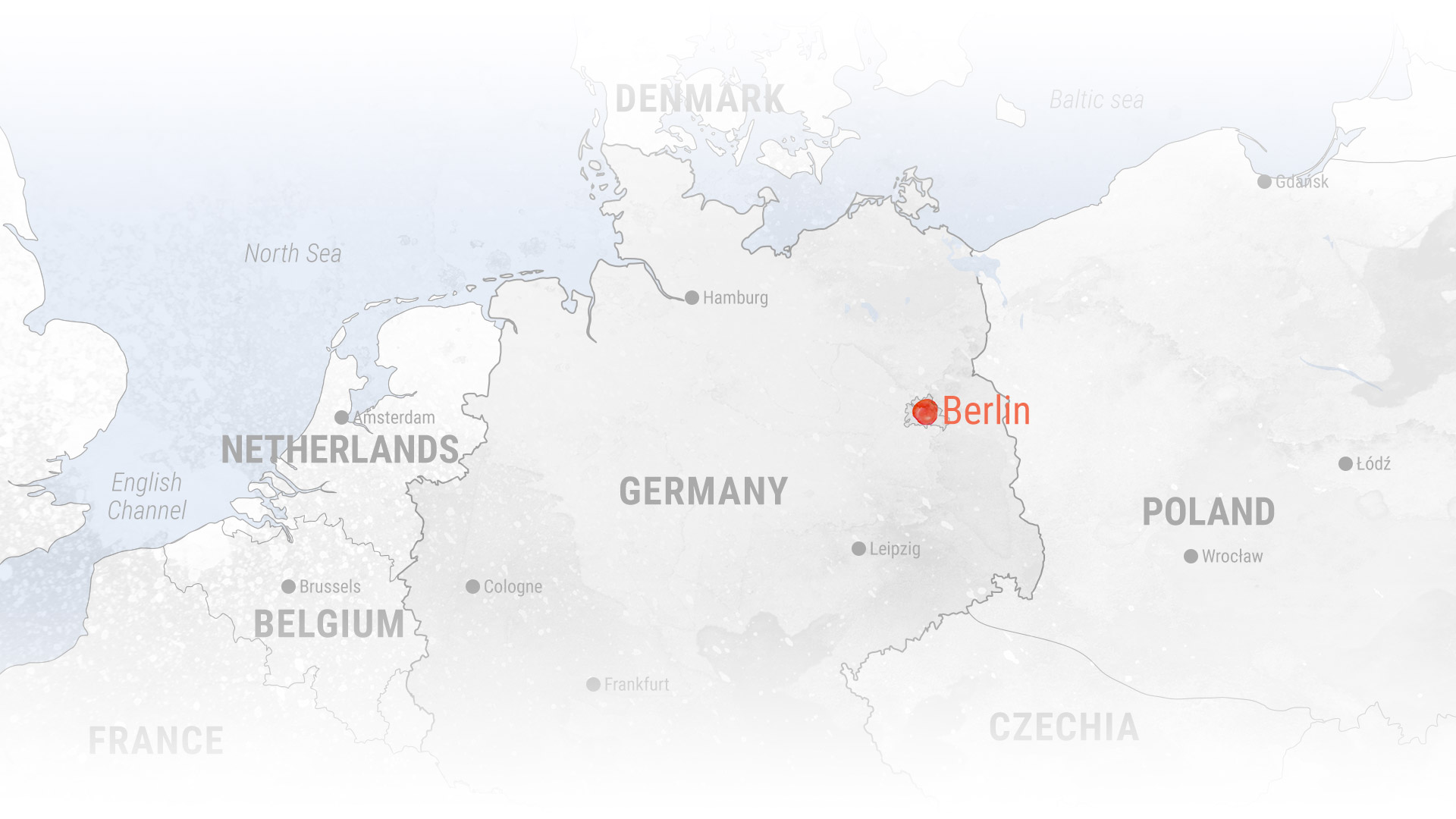Unlike Lebanon, the European Union and most EU member states have so far maintained that without a political transition in place, no agreement concerning either refugee return or reconstruction will be allowed with the Syrian government. But considering the fast-pace of political change in Europe today, such positions might not hold for long.
“What is most worrying is how extreme-right wing rhetoric is making its way into mainstream politics,” says Christin Luettich, head of the German-Syrian initiative ‘Adopt a Revolution.’ Far-right parties across Europe have made an unexpected bedfellow with Assad. Italy's far-right Forza Nuova and CasaPound, Greece's fascist Golden Dawn, the UK's British National Party (BNP), Poland's ultranationalist National Rebirth and Germany’s Alternative for Germany (AfD) have all been part of a push to normalise relations with Assad. Just a few weeks ago, the right-wing Identitarian Movement plastered Berlin with posters saying: ‘the war is over, Syria needs you,’ in an attempt to advocate for refugee return as well as the normalisation of Germany’s relations with the regime.
Where these groups were once marginal actors, recent election turnouts have emboldened their stance. “We are experiencing a dramatic rise of xenophobic sentiment across Europe, and despite the fact that these far-right groups are an extreme minority and shouldn’t be given prominent space, the fear they trigger in migrant and refugee communities is real,” Luettich explains.
In a café close to Berlin’s multicultural neighbourhood of Neukoln we meet with Syrian youth, the first to be re-building a new life in Germany’s capital. “When I first arrived to Germany in 2014, I was living in a refugee accommodation in the Berlin district of Marzahn. You could not open the windows at night as Nazis would come and throw molotovs,” says Ahmad, a 25-year old social worker from Raqqa. In August 2018, the murder of a German national by a Syrian refugee in the city of Chemnitz sparked far-right marches and a series xenophobic attacks where vigilante groups ‘hunted’ people of colour.
“Maybe Germans are reconsidering our presence here, and we are being too complacent with it” says Yousef, a young engineer from Aleppo now living in Berlin. The 2015 decision by Chancellor Angela Merkel to open Germany’s borders to nearly 800.000 Syrian refugees has since then been highly criticised by opposition politicians as well as by members of her own government.

Families for Freedom hold a demonstration outside the Russian embassy in Berlin, holding up the pictures of those who have been disappeared by the Syrian regime. © David Suber
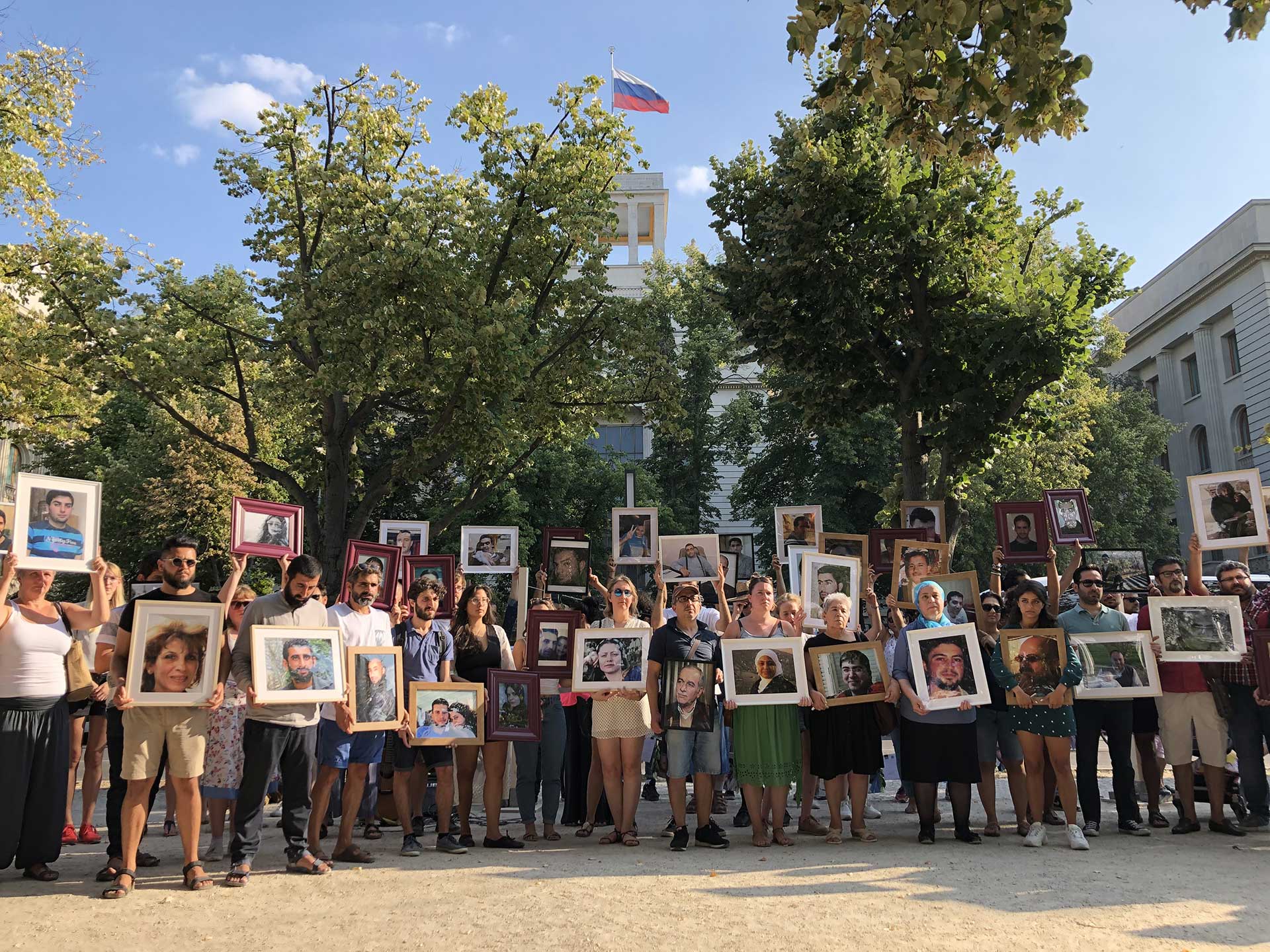
A woman walks along Sonnenalle Street in Berlin. © Hannah Kirmes-Daly
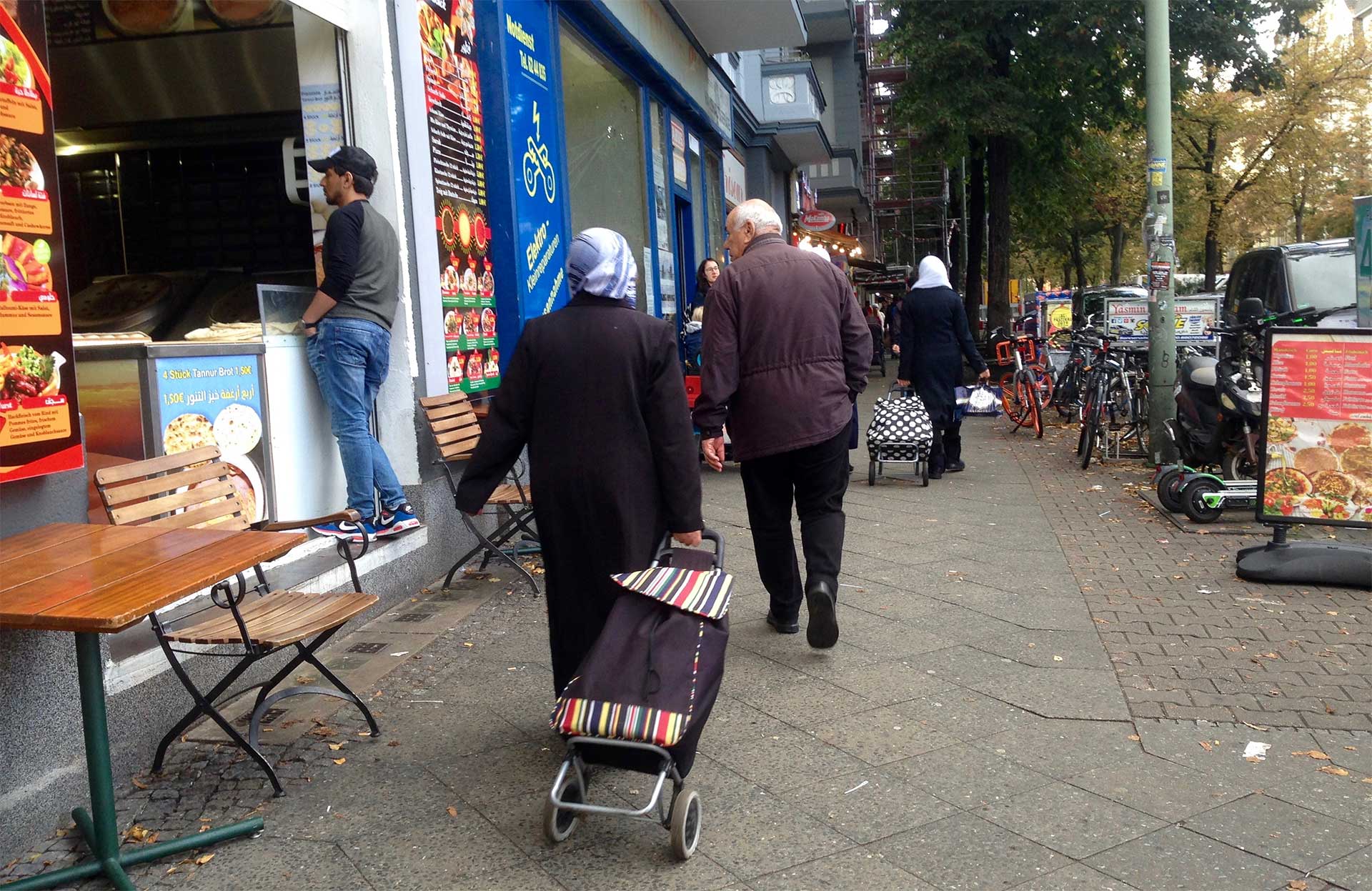
In the last few years, most Syrian refugees registered in Germany were only granted temporary protection rather than full refugee status, a condition many see as evidence of Germany’s changing attitude towards refugees. “Many Syrians think that if you are fined on the U-Bahn you will be deported, that if you don’t qualify for a high German language level you will be deported, that if you don’t pay taxes you will be deported,” Ahmad tells us. “It’s our daily concern here, from the day we receive status, we are all worried of losing it.”
In 2017, the Federal Office for Migration and Refugees started including Syrians as possible beneficiaries of their return-migration programs, offering financial incentives to Syrians who voluntarily returned to Syria. Only 742 Syrians have returned through this scheme so far, each receiving a personal cash incentive of around 1200 euro. Forceful deportations to Syria are currently prohibited, as the Foreign Ministry has declared Syria unsafe for return. Nevertheless, politicians such as Bavaria’s Minister of Interior Joachim Herman have called to overturn the Foreign Ministry’s security assessment at the next forum for Germany’s Interior Ministers, set to take place at the close of 2019.

“Imagine if Germany told us we had to return to Syria tomorrow, saying this to people who have tried to re-build a life here, have fought to learn the language, find a job, start a family…that would be terrifying,” says Yousef. “I wouldn’t be able to return to Syria and keep my mouth shut, knowing the atrocities the regime did and continues perpetrating.”
This fear is awake in Syrians all over the world. For many of them, if the regime and its security forces are not put aside by some sort of political transition, return is off the list. “Berlin is the city of exiles. People live here because they cannot fit somewhere else, or because they have lost hope in the places where all their dreams were crushed”, says Abu Hajjar, 32-year old Syrian activist also living in Berlin. “The war which was so filmed and talked about will be over soon,” he concludes. “If Assad does not go, what we will witness from now on is a soft massacre, silently taking place in the basements of dark unknown prisons.”
**All names of interviewees who do not appear in an official role have been changed to protect their identities.

